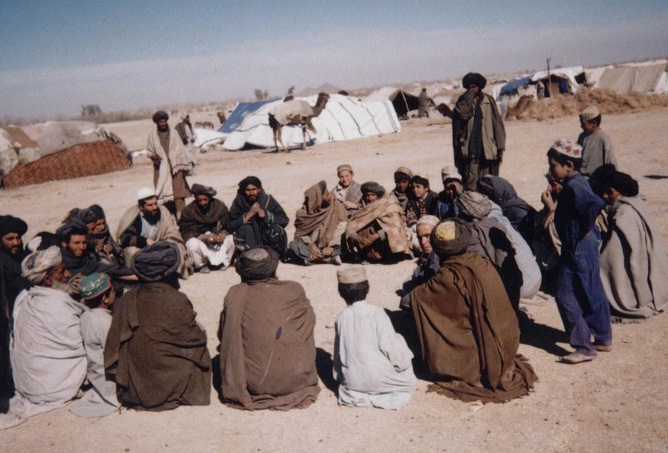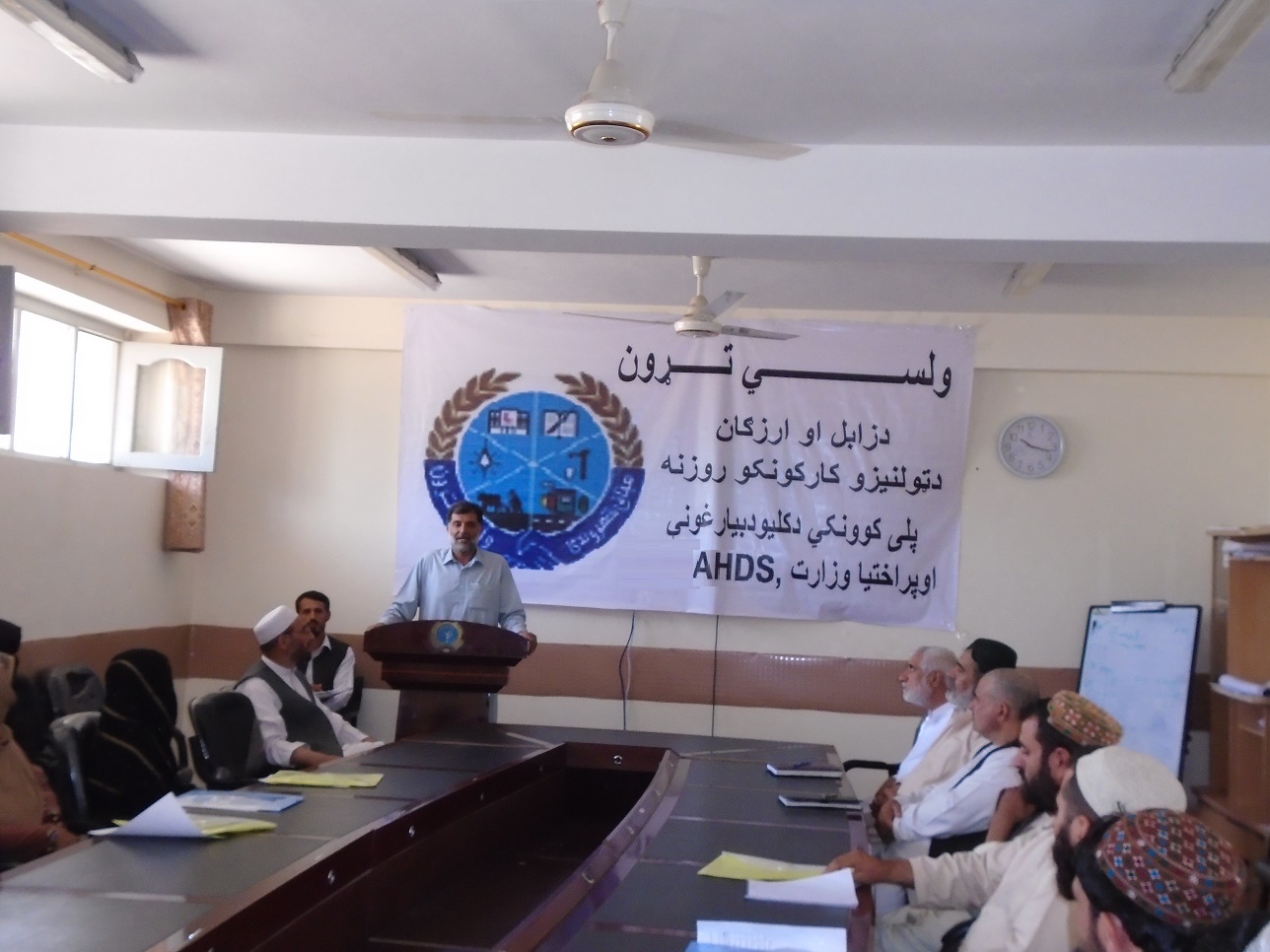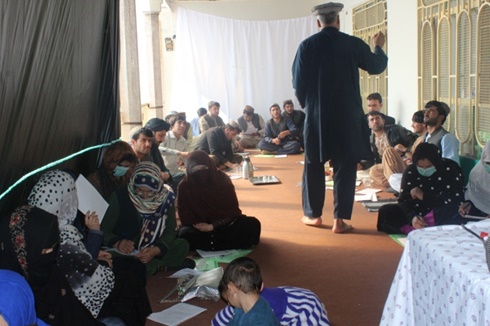Community Development
programs contribute to the following SDGs

Accountability to the People
A major part of our success is due to the acceptance we have gained from the local communities and the cooperation they continue to provide. Without the critical support and collaboration of these communities AHDS’ success would not be possible. It is this idea that transcends the financial assistance coming from the international community, and stresses the importance of communities assuming the kind of practical, on-the-ground responsibility for the continuing improved health of this and future generations. Without a sense of personal responsibility in the local communities to complement the broader social responsibility of the international community, the sustainability of reconstruction efforts such as ours will be at great risk. There is no doubt that Afghanistan is not ready to be free of international assistance. But without local Afghans accepting personal responsibility for the on-going health and welfare of the members in their community, it will be impossible for the country to prosper.
The secret of our success is related to our ability to reach peoples, gain their support and corporations and involve them in our efforts. Without critical support and collaboration from these communities, AHDS’ success would not be possible. Our experiences are indicative that by directly engaging and involving communities in our efforts and making them aware of their rights and responsibilities, we can ensure sustainable development.
The target people are consulted for their needs and what is going to be planned during the rapid needs assessments. A community committees (Shura) is established for each service delivery point; or linkage established with the community development council (CDC) if exist. Usually the village local committees (Shura) take this responsibility. The members of Shura are encouraged to take responsibilities to facilitate activities, ensure security of the staff, transfer health messages to the villagers, prompt informing about any casualty and outbreak to the staff, facilitate transportation means if required, and share concerns of the people with AHDS. The Shura is main contact mean between the people and AHDS offices.

At the beginning of any project, each service delivery point presents the types and extend of services can be provided for the people. The Shura members are oriented on how to cooperate with the service delivery point; rapid assessment, proposing solution, drafting initial plan, negotiation with authorities, community monitoring, early reporting of the concerned cases, follow up of the defaulters and oversight.
The monthly Shura meetings are mainly used for two-way communication; reporting/information sharing to the Shura and receiving their feedbacks and recommendations.
A complain mechanism is established on how to complain to the in-charge officer or Health Shura members. The aim is to ensure quality services are provided to the people with full respect to their dignity. Presence of female staff facilitates complaint reporting for the women and children. In case of any complaint, Shura members raise it in the monthly meetings, if not solved, than they share it with AHDS provincial office.
Do not harm principle is considered for any activity initiated by AHDS in the field. The services and staff are managed in a very user friendly manner to avoid any direct or indirect harm to the communities and its environment. Local traditions are considered and respected during services provision, movements in the villages and home visits.
Citizens’ Charter
AHDS is involved in facilitation of the Citizens’ Charter National Priority Program (CCNPP) in Afghanistan. The objective of CCNPP is to improve the delivery of core infrastructure and social services to participating communities through strengthened Community Development Councils (CDCs). The program is a whole-of-government effort to end fragmentation, bring people together to collectively address their development needs and contribute towards unity. The Charter is a commitment to provide every village and urban communities in Afghanistan with basic services, based on community prioritization.

A three years’ contract for Citizen’s Charter National Priority Program/ Citizens’ Charter Afghanistan Project (CCNPP/ CCAP); CCAP-I/MRRD/CS/FP-1 was made on the 16 May 2017, between the Ministry of Rural Rehabilitation and Development, Afghanistan (MRRD) and AHDS & SDO Joint Venture for package#1. The Joint Venture is responsible for the facilitation of the CCNPP in 746 communities in Zabul and Uruzgan provinces.
The AHDS in partnership with SDO is mainly responsible for community mobilization for Citizens’ Charter, facilitation of CDCs, its sub-committees and participatory community monitoring team establishment, clustering the CDCs, basic community profiles, socio-economic grouping, participatory methodologies to address key issues within the communities, women’s empowerment, inclusion of the vulnerable groups, community development plans, capacity building of CDCs and sub-committees, support CDC, Cluster CDC and sub-committees, facilitate community-led total sanitation and build capacity of a cadre of future SOs from among emerging leaders in the communities and Tashkeel staff. Facilitation of Social Inclusion Grants (SIG) as a pilot in Tirinkote was also signed with AHDS. The aim is to support the CDCs to identify the vulnerable and help the very poor socio-economic households.

Livelihood
AHDS implanted a livelihood project in 2008-2011 in Uruzgan Province. The Support vulnerable farmers’ families program aimed to enhance farmers’ and women headed families’ ability in order to increase food production and productivity through agriculture livelihood diversification, in the framework of the pillar food-security of the master plan and the strategy developed by MAIL.
The objective was to increase food production and productivity in order to reduce vulnerability to future food crises through distribution of quality agricultural and livestock inputs and transfer of new technologies. It helped in reduction of poverty and poppy cultivation in Uruzgan Province especially.

